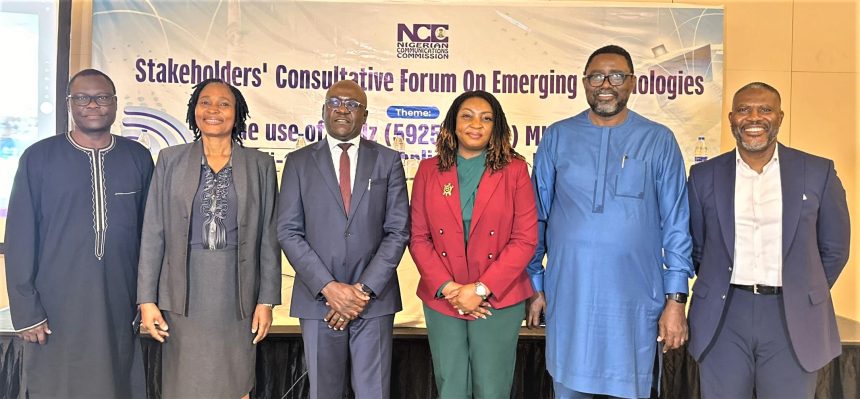The Nigerian Communications Commission, NCC, has sought for the inputs of industry experts and other stakeholders on the use of the 6GHz for Wi-Fi – 6 and International Mobile Telecommunications, MT.
The Executive Vice Chairman, EVC/Chief Executive Officer, CEO, NCC, Dr. Aminu Maida, made the call on Thursday at the annual Stakeholders’ Consultative Forum on Emerging Technologies held in Lagos.
Represented by the Executive Commissioner, Technical Services, NCC, Engr. Abraham Oshadami, Maida said the call was in line with one of the key factors on collaboration as outlined in the commission’s focus areas, stressing that it was a traditionally institutionalized policy of participatory regulation and the practice of industry-wide consultations in conducting its regulatory functions.
He said that in line with global best practices, the NCC believed that its actions must be guided by decisions that took into cognizance the inputs from all stakeholders in the industry.
READ ALSO: NNPC Ltd moves to revive Brass, OK LNG projects
“The 6GHz band, spanning from 5925 MHz to 7125 MHz, offers a substantial increase in available spectrum, which is crucial for supporting the growing demand for high-speed internet and advanced applications Wi-Fi plays a crucial role in the distribution of fixed broadband connectivity in homes, offices, and various other environments,” he said.
He stated that the vast majority of home internet traffic was connected to the end-user through Wi-Fi.
He added that in enterprise settings, Wi-Fi was essential for handling large amounts of data and simultaneously connecting large numbers of devices with improved reliability, higher data throughput, and lower latencies.
He said, however, that the 5GHz and 2.4GHz that were being used for Wi-Fi (Wi-Fi 5) at the moment were becoming overwhelmed due to an increase in demand for capacity.
“It is, therefore, imperative to identify other frequency bands to complement the 5GHz and 2.4GHz.,” he said.
He added: “The recently concluded 2023 World Radiocommunications Conference (WRC-23) allocated the 6GHz band for Wi-Fi and IMT applications with different recommendations on how to use the band. This was the outcome of a long study cycle process leading to the decision at the WRC-2023 in Dubai, United Arab Emirates.
“Today, we present to you our thoughts and recommendations on the use of the Spectrum band to get your feedback for informed decision-making.”
Earlier, the NCC boss expressed his pleasure over the plan by Nigeria to join the league of countries already utilizing part of the 6GHz band for Wi-Fi -6 applications.
He explained that following the decision of the nation to join the league of countries already utilizing part of the 6GHz band for Wi-Fi -6 applications, the commission decided to reposition itself on a path that would ensure the uptake of opportunities through its strategic focus areas which is driven by the recognition that each of the stakeholders maintained a unique perspective and have certain expectations.
He stated further: “Therefore, to accomplish our objectives in driving our strategic goals, the Commission identified some key factors, which include people, collaboration data, compliance, and Digitalization.
“Guided by our actions in the right direction and, of course, that of the Federal Government through the Ministers Strategic Blueprint centered around knowledge policies, infrastructure, innovation, entrepreneurship and Capital as well Trade, we have been able to set the ball rolling to enhance telecommunication service delivery in Nigeria.”














